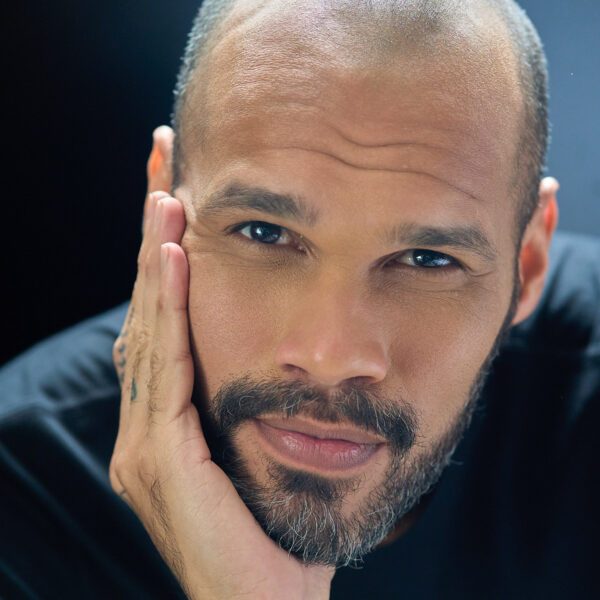
Raul
“I Am Here” – The Story of Raul Nuneswith poetry…
My name is Rachel, and this is my story.
When I was 17, I thought I had my whole life ahead of me. I was young, scared, and excited—I’d just found out I was pregnant. I hadn’t even told my parents yet. It was supposed to be a time of hope and new beginnings.
Then, during a routine blood test, my world came crashing down. After my first scan, the doctor sat me down and said, “Something’s come up in your blood test. You’re HIV positive.”
I didn’t even fully understand what HIV was. All I knew was what I’d heard—a disease that kills people. Suddenly, my joy was replaced with terror. I thought I was going to die. I thought my baby was going to die. I remember punching my stomach, sobbing, “Get the baby out of me!” I was consumed by fear, anger, and shame.
Eventually, I learned how I’d contracted it. The man I was with when I was 16—six years older than me—had known he was HIV positive for a year before I found out. He never told me. He let me find out like this at my most vulnerable. I was devastated.
My daughter, thankfully, was born negative. I clung to the hope that I could protect her, even as I struggled to defend myself. I started medication, but it was a nightmare. The pills were enormous, the side effects unbearable—constant nausea, splitting headaches. But I stayed on them. I had to.
For years, though, the stigma was worse than the medication. People spray-painted “Person living with AIDS” on my home. Hospitals treated me like a threat—putting “infectious disease” signs on doors and isolating me in ways that felt more like punishment than care. Every whisper and look chipped away at me until I felt like nothing.
I avoided support groups for years. When I was first diagnosed, I walked into one and saw a room full of older African women. They were kind, but I felt like I didn’t belong. I was 17 and scared, so I never went back. For over a decade, I carried the weight of HIV alone.
But in 2019, everything changed. I attended a workshop and, for the first time, I said it out loud: “I’m HIV positive.” Standing there, sharing my story, I felt a shift deep inside me. The shame that had clung to me for so long began to lift. I realised I could own my story, and with that, I could change how people see HIV.
Since then, I’ve made it my mission to raise awareness and dismantle the stigma that nearly destroyed me. I volunteer at George House Trust, where I help women who are newly diagnosed or struggling to accept their status. I’ve shared my story at workshops and events, showing people that HIV doesn’t have to define them. I focus on educating others, especially young people because I was a teenager when I was diagnosed. I know the fear, the confusion, the isolation—and I want to be the voice I needed back then.
U=U (Undetectable = Untransmittable) is a message I live by now. It’s proof that HIV doesn’t make us dangerous or broken. With proper treatment, we can’t pass it on. That’s the truth I want the world to know. The stigma around HIV is outdated, cruel, and completely unnecessary. My mission is to challenge it and break it down piece by piece.
The stigma has taken so much from me. I stayed in an abusive relationship for 16 years because I thought no one else would love me. I lost my son to foster care and then adoption because the system failed to see me as a capable mother. I’ve been called names, ostracised, and judged in ways that made me feel like I was less than human.
But I’m still here. And I’m fighting back.
I’m proud to say I’ve built a life I never thought possible. I’m a mum to four beautiful children, all HIV-negative. I’ve found love again, even after believing for so long that I didn’t deserve it. And now, I use my voice to help others find theirs.
When I speak to women who are newly diagnosed, I tell them this: “You’re not alone. HIV doesn’t define you. And you have nothing to be ashamed of.” I want people to see that living with HIV isn’t a death sentence. It’s a challenge, but we can face it with strength and resilience.
If I can do anything with my life, it’s this: I want to make sure the next generation doesn’t have to feel the way I felt when I was 17. I want them to know that HIV is manageable, that U=U is accurate, and that they are so much more than a diagnosis.
Today, I’m undetectable. I’m unstoppable. And I’m just getting started.
Share this story on: